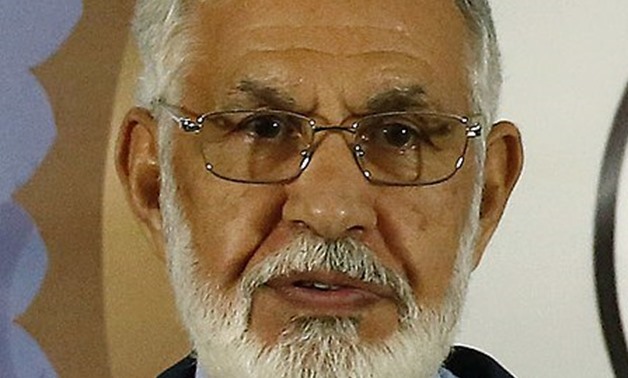
Libyan minister of Foreign affairs Mohamed Taher Siala via Wikimedia commons
CAIRO – 12 April 2018: Libyan Minister of Foreign Affairs Mohamed Taher Siala praised Egypt’s role in unifying the military factions, he said in statements to Egypt Today on Thursday.
Siala added that the Libyan government thanked all the governments and countries that supported it during the past period including Egypt and its political initiative to host all of the military factions in order to reach a unified and secured country.
Egypt has hosted several meetings to bring the Libyan conflicted factions to the negotiations table, alongside members of Tobruk’s House of Representatives, to resolve the Libyan crisis and amend the Skhirat agreement, which aims at ending Libya’s civil war.
In December 2016, Cairo hosted a conference attended by Libyan officials and representatives from the country’s numerous factions, where they issued five proposed amendments to the agreement. The conference concluded with a decision to amend the eighth article of the Skhirat agreement that outlined the jurisdiction of the Libyan army chief commander.
Negotiations to unify the Libyan military were held as a part of Egypt’s initiative that kicked off in July 2017 to unify the military institutions. The first meeting aimed at creating a framework for the initiative while the second and third meetings were held in Cairo from Oct. 29 to Nov. 2, 2017, to follow up on the results of the first meeting.
The fourth meeting was held from Dec. 6 to 9 to restructure the Libyan army.
Egyptian Officials met again with Libyan military forces in Cairo on Feb. 21 in order to continue the discussions that started on Feb. 16.
The meetings delved into the methods used to unify and restructure the Libyan military forces after a long split that the result of an outbreak of the Libyan revolution in 2011.
Libya, which is struggling to get through the critical political situation that it has been experiencing since 2011, is not only trying to unify its army, but is longing to revive its political functions by conducting presidential and legislative elections by mid-2018.
Despite the fact that no law has been issued regarding regulating the elections, solutions were suggested by politicians and presidential candidates in order to make sure they would be conducted at the announced timing. For instance, during an interview with Egypt Today on March 12, presidential candidate Aref Ali Nayed suggested making some amendments to the already-existing law to regulate the elections. He argued that even the constitution is still disagreed upon by various Libyan factions.
Nayed was the first to announce his intentions to run for the presidency despite the large popular base for Saif al-Islam Gaddafi. The son of the former Libyan president announced his presidential plan for reform on March 19 from Tunisia, affirming his candidacy.
In another interview with Egypt Today last January, Emad al-Sayeh, head of the Electoral Commission in Libya, explained the current situation that hangs between alarm and hope inside Libya. He gave several details about the anticipated elections, adding that they are waiting for the Elections Regulation Law, which would allow the commission to pursue its work. Until then, the commission was to update its database for eligible voters based on law article No. 8 for 2013.
“This procedure will save us time and effort after receiving the elections law. We need almost three to four months of preparations after receiving the law, so this step had to be taken earlier,” Sayeh said.
About 485,000 Libyan citizens have registered their names during the past months at the commission. This number, however, is considered to be very low, as the past number of voters registered at the commission was two million out of the 4.5 million eligible Libyan voters, according to Sayeh.
Sayeh expected huge participation from Libyans in the upcoming elections. “We announced that we need almost 66 million Libyan dinars ($49 million) as a budget for the electoral process; however, all we have for now is only 1.5 million dinars,” he said.
Since 2011, Libya has been witnessing severe devastating political escalations, which reached a new high with the emergence of the Islamic State (IS) terrorist group that has killed hundreds of innocent civilians. Their operations in Sirte were of particular gravity when the city was taken and turned into a stronghold for the terrorist group. The situation inside Libya became complex, and some politicians and experts felt there were no political means to reunify the country. Now however, with the aid and support of the Arab countries, Libya seems to be on the right track to achieving full political and civil rights.

Comments
Leave a Comment